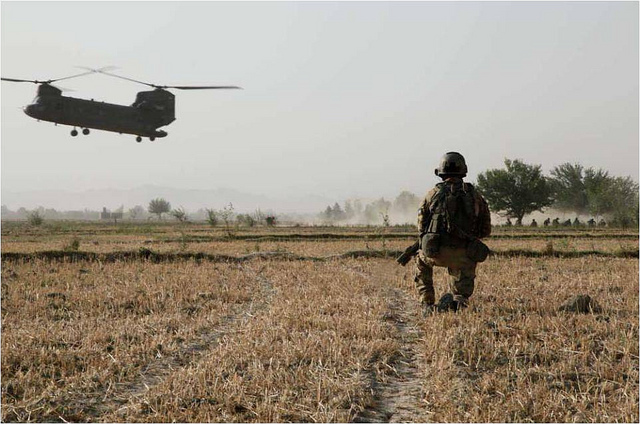Special Operations Forces Deserve Equal Recognition

Other American soldiers killed in action included three Air Force combat controllers, five Navy Special Warfare personnel, and five members of the Army’s storied 160th Special Operations Aviation Regiment, also known as the Night Stalkers. Despite the important contributions of the other special operations forces, the Navy SEALs received the majority of recognition while the rest seemed almost an afterthought.
When the news broke that a rocket-propelled grenade had taken out a helicopter full of America’s elite troops, the media immediately focused on the Navy SEALs. Major news outlets like ABC, NBC, and CNN devoted their air time to describing the role and training of the SEALs. None mentioned the trials and rigorous tests required to become an Air Force combat controller or a helicopter pilot in the 160th.
Perhaps the difference in news coverage can be attributed to the fact that Navy SEALs are often portrayed and thought of in popular culture as a Rambo-type commando. The mythos regarding the intensity of Basic Underwater Demolition/SEAL training reinforces the image of hardened supermen. On the other hand, training methods for other special operations forces are less well-known. Even though Air Force combat controllers and pilots in the 160th require the same motivation, devotion, and iron will to make it through training, they do not gain the same recognition as the SEALs.
The discrepancy became evident with the case of Chief Warrant Officer Bryan Nichols, one of the pilots in the Chinook helicopter. While the media put the reporting emphasis on the loss of Navy SEALs, the other US service personnel were given little air time. So little, in fact, that Braydon Nichols, the son of Bryan Nichols, wondered why his father was not receiving any attention. Braydon had to write an iReport to CNN before the news coverage shifted to include the other Americans killed in action. Even then, the three Air Force combat controllers were still wrongly left out.
This lack of recognition is something which should be rectified. Without combat controllers, it is not easy to call in the close air support that is a major boon to raids, which often take place behind enemy lines. Without brave pilots, commandos do not have the transport that can get them quickly and reliably to a target area. Although pilots and other special operations personnel may not do the actual shooting, they provide major contributions that are integral to the success of any given operation.
All who were killed were some of America’s bravest and finest. They continuously deploy and take on high-risk missions, despite the danger they face. In the end, these soldiers have made the ultimate sacrifice. As such, it is important that we recognize and honor all our special operations forces equally, no matter their role.



